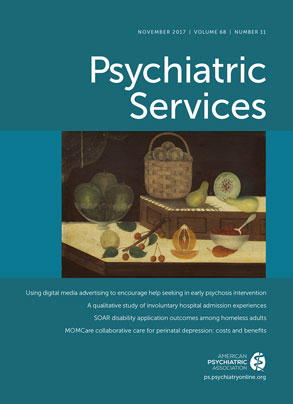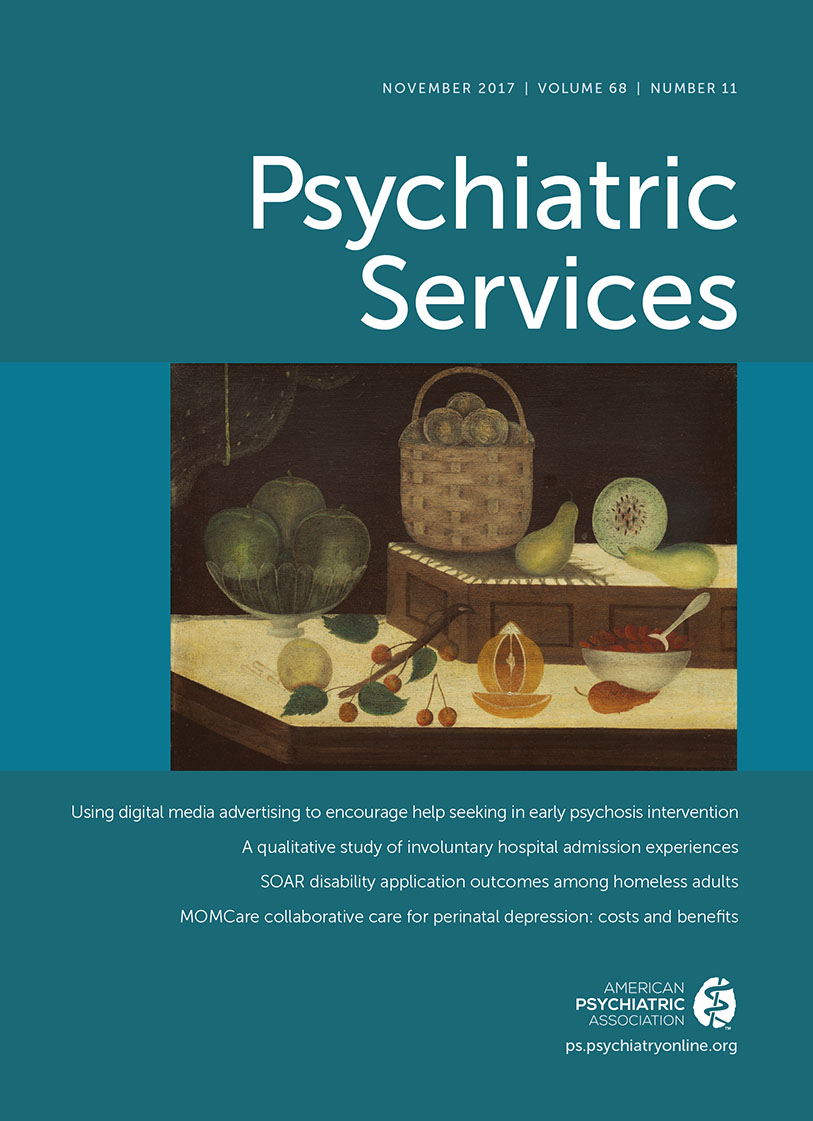As the U.S. government considers measures to increase mandated outpatient treatment, there still is time to learn an important lesson from an article appearing in this issue. Rebecca Murphy and colleagues used qualitative methods to explore the perspective of persons hospitalized against their will. Unlike in previous research, in this study the researchers identified aspects of participants’ experiences that mitigated to some degree the deleterious effects of coercion, suggesting directions for improvements in practice, even when interventions may need to be imposed on people involuntarily. These lessons are especially important given that serious mental illnesses are often conditions that require care, and self-care, over prolonged periods. That is, they are seldom “cured” by one episode of treatment.
Why does this matter? It matters because mandated treatment aims to engage people who need care into a treatment and rehabilitative process embedded within a system in which different practitioners provide various levels of care across an array of service settings over a significant period of time. Mandated treatment does not aim to hold someone captive for three days to three weeks on a locked inpatient unit only to be discharged back to the community with a follow-up outpatient appointment that he or she will seldom make. That experience falls well short of the goal of “engagement,” while often alienating people further from the very care they so urgently need.
What Murphy and colleagues identify and illustrate is that how people are treated during an involuntary admission can either reinforce or help to overcome the traumatic effects of coercion. The kind of care people receive, even when against their will, makes an important difference both in the effectiveness of the care offered and in the degree of engagement that the care is able to secure. This study thus suggests that there are ways in which coercive care can be provided so as to maximize the likelihood that a person will follow through with outpatient care over time—not because that care continues to be mandated but because the person comes to see the benefits that it offers in improving his or her day-to-day life.
The authors characterize such care as openly acknowledging the traumatic nature of coercion and as being offered in a “person-centered” manner. Some participants in this study, for example, described their admission as being “conducted in a calm and considerate manner, in which they felt actively included, listened to, and cared for.” Describing an attitude among some staff as embodying recognition of the “debilitating impact of forced detention on personhood and psychological well-being,” the authors conclude that “a person-centered approach can be achieved [even] in the pressured and difficult context of involuntary admission.”
Unfortunately, the authors also note that “experiences of humanizing care frequently appeared to depend on a particular staff member” as opposed to being systemic or widespread. If, as they argue, such care mitigates “the potentially traumatizing nature of involuntary admissions and . . . induce[s] increased acceptance of compulsory treatment,” then whether care is provided in a person-centered manner should not be left to chance. Rather, advocates of mandated treatment whose aim is ultimately to engage people into the care they need in the most efficient and effective manner possible also should take up the cause of ensuring that such care is provided in as respectful and person-centered a manner as possible.
More than anything else, this important study provides insight into the fact that coercion need not be disrespectful and dehumanizing. To the degree that advocates of coercive care base their advocacy on the belief that people are too sick to recognize their need for care, this should be a most welcome insight. As a civilized society, we offer our deepest respect and compassion to those who are suffering most from serious illnesses such as cancer, Alzheimer’s, or—in honor of the recent passing of Jerry Lewis—muscular dystrophy. Recognizing that mental illnesses are illnesses, too, requires us to approach persons we view as seriously disabled by these conditions to the degree that they require involuntary care in a similarly respectful and caring manner. Murphy and colleagues point out that it is in fact possible to do so. It now remains for the field to ensure that this becomes a standard of practice.

